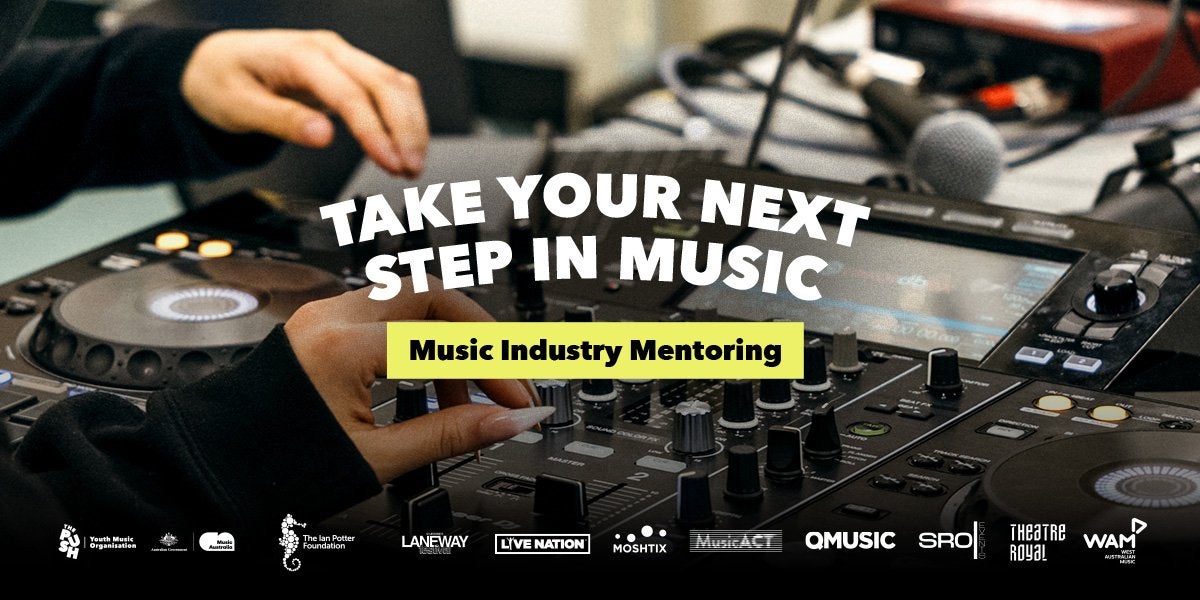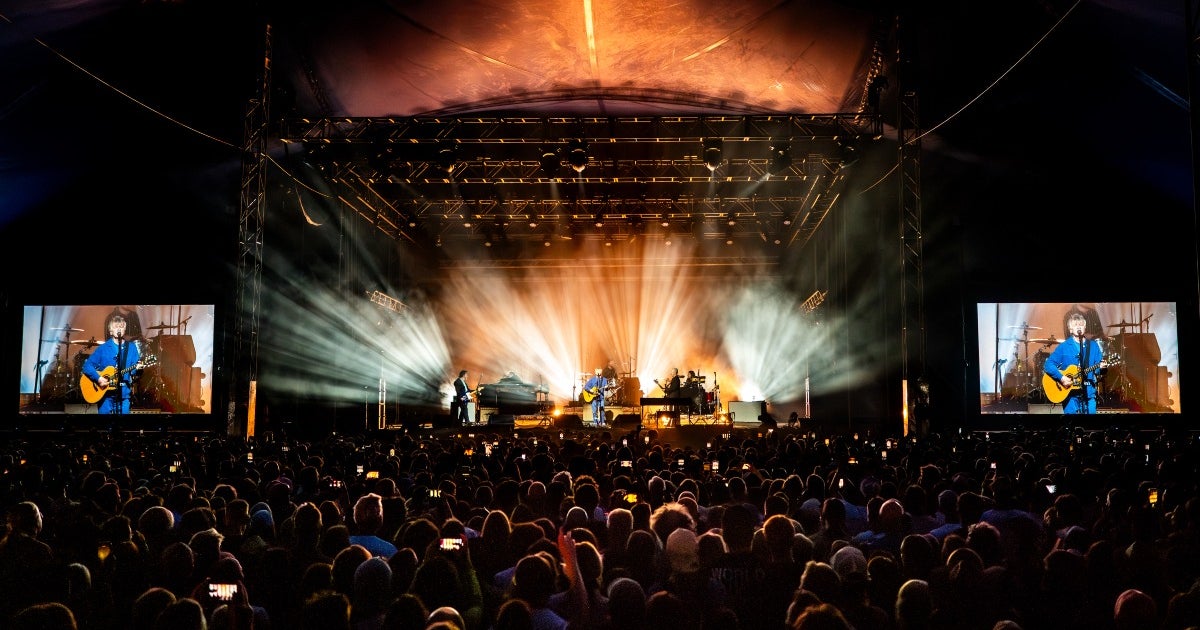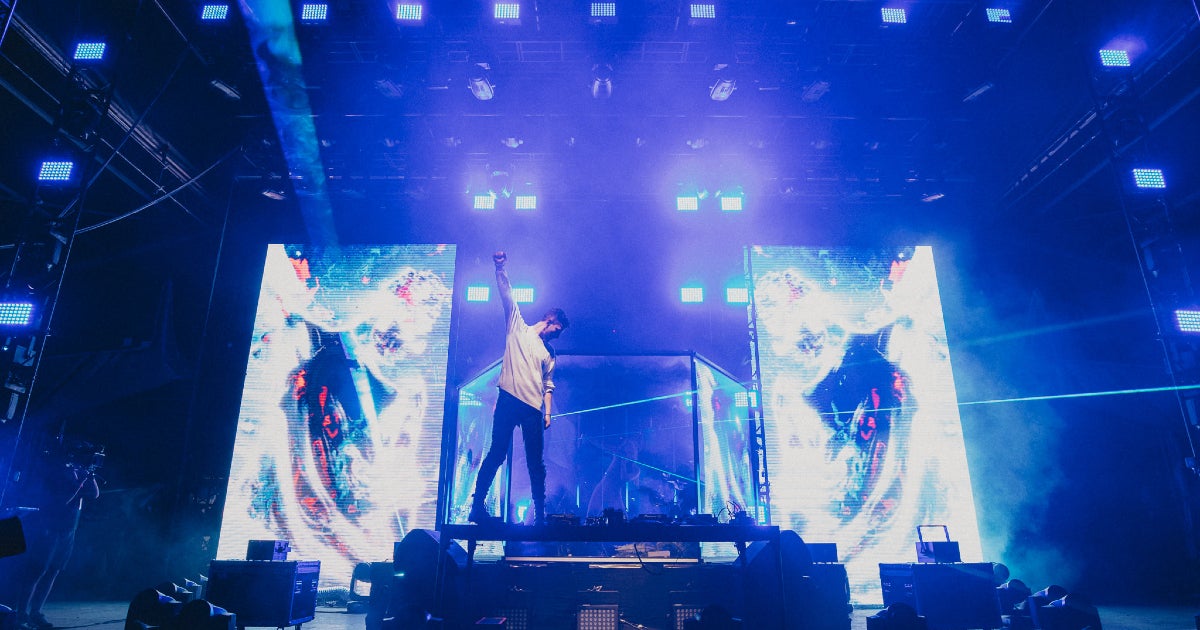What’s the hardest thing about learning your craft? We asked women in electronic music

MusicNSW launched their excellent Women In Electronic Music Program last year, featuring live showcases and a series of masterclasses to help teach women the technical and production skills used in EDM.
Back by popular demand and sheer significance, this year’s Women In Electronic Music Masterclasses feature eight lessons from some of the best in the biz.
Taking place on May 12 and 19 at 107 Projects in Redfern, the schedule includes an Intro to Ableton Live with musician, producer and Liveschool trainer Ninajirachi; one-on-one Audio Engineering Workshops with Antonia Gauci (will.i.am, Lil Yachty, Macklemore & Ryan Lewis); and an intro to Electronic Production and Songwriting with multidisciplinary artist May Lyn.
As a primer of sorts, we asked six of the masterclass tutors to describe: the hardest thing about learning their craft. Check out their answers below.
May Lyn
Writing and producing has always been an interesting explorative and learning process, which isn’t hard to do because I enjoy it a lot. But the business aspects of becoming a professional musician has been the hardest, because when money becomes involved it changes my attitude towards doing music being a hobby and it being work.
There’s a lot of new decisions I have to make and the pressure of needing to sacrifice my emotional and creative energy for things that aren’t related to writing or performing music for the sake of it being good business sense.
Regardless, I try to maintain a healthy balance between the two but I always put the creative process first and take new challenges as an opportunity to grow, even if it’s not related to making music. To put it in perspective, getting paid to be a musician is a blessing, but not a priority.
Ayebatonye
The hardest thing about learning how to become a DJ for me was being confident enough to play music I love in front of large crowds because I’m good at psyching myself out.
I used to always get this nervous adrenaline rush before I play and would sometimes make silly abrupt mistakes simply because of fear. Music taste is so subjective, my favourite kind of music to play and listen to is a little different from what you hear in most mainstream clubs and at parties.
I really enjoy playing songs with African drum beat and vocal samples, made by African Artists and Artists of the African diaspora such as Shimza or Mawimbi or remixes of African songs and mixing them with other genres like ballroom/vogue or 90s house or bass.
Nowadays I’m a lot better at just trying to vibe with what I’m playing and just enjoy my set, I still do have the occasional freak out and stuff but I have realised if you’re having a great time during your set generally your crowd will have a good time as well and nobody is perfect. You can always dance off a mistake!
Michelle Barry
I think the hardest thing was getting my first studio jobs because as an engineer to refine your craft you need to be working. After the initial finding out just what all those buttons do it’s about making the gear work for the song which is a much longer learning curve.
As far as the technical side goes, it’s just going through things methodically, which is obviously easier sometimes than others. I used to work under a great engineer that when approached by a problem would say, “how hard can it be”. I still repeat that to myself at times.
Ebony Boadu
Hardest thing about learning to DJ was getting people to take me seriously. DJing is one of those things that almost everyone says they want to learn to do so I guess it’s hard for people to tell whether or not you really mean it.
It forced me to basically teach myself, I paid super close attention to other DJs I knew, then saved up and invested in all the equipment – the first set I ever played was my own party because I knew no one else was going to initially give me a shot without seeing all the work I’d put in.
To be honest it sort of worked out perfectly because the party became a regular night and lead to loads of other opportunities.
Ninajirachi
The hardest thing about learning how to become a professional musician (not that I really consider myself one) was generally knowing next to nothing at all about music business. I started uploading music to SoundCloud when I was around fourteen and it was just one of a number of hobbies.
I didn’t know anybody in ‘the industry’ or how to go about meeting those people and learning all that stuff – it didn’t seem interesting or important at the time. The most self-promotion I did was tweeting SoundCloud links at artists I liked asking for advice.
I wouldn’t change anything either – everything really fell into the right place at the right time for me, and I’m glad that I spent my first few years learning how to produce music doing exactly that rather than pushing it out to people wherever I could.
Antonia Gauci
Learning to become an audio engineer hasn’t been too challenging as I’ve had some incredible engineers and musicians take me under their wings, but getting my first foot in the door did take time.
Three years of interning and offering my time for free, and not always working in studios. Eventually it all lead to better opportunities and where I am now.
So I guess learning to persevere through the slog would be the hardest thing… knowing when to make sacrifices in your personal life to make way for gains in your career. And knowing when to take a break for yourself, so you can recharge, enjoy, have fun and come back and do your best work. I still try and remind myself of those things every day.
The Women In Electronic Music Masterclasses takes place on May 12 and 19 at 107 Projects in Redfern.

The article was originally published on The Industry Observer




.jpg)